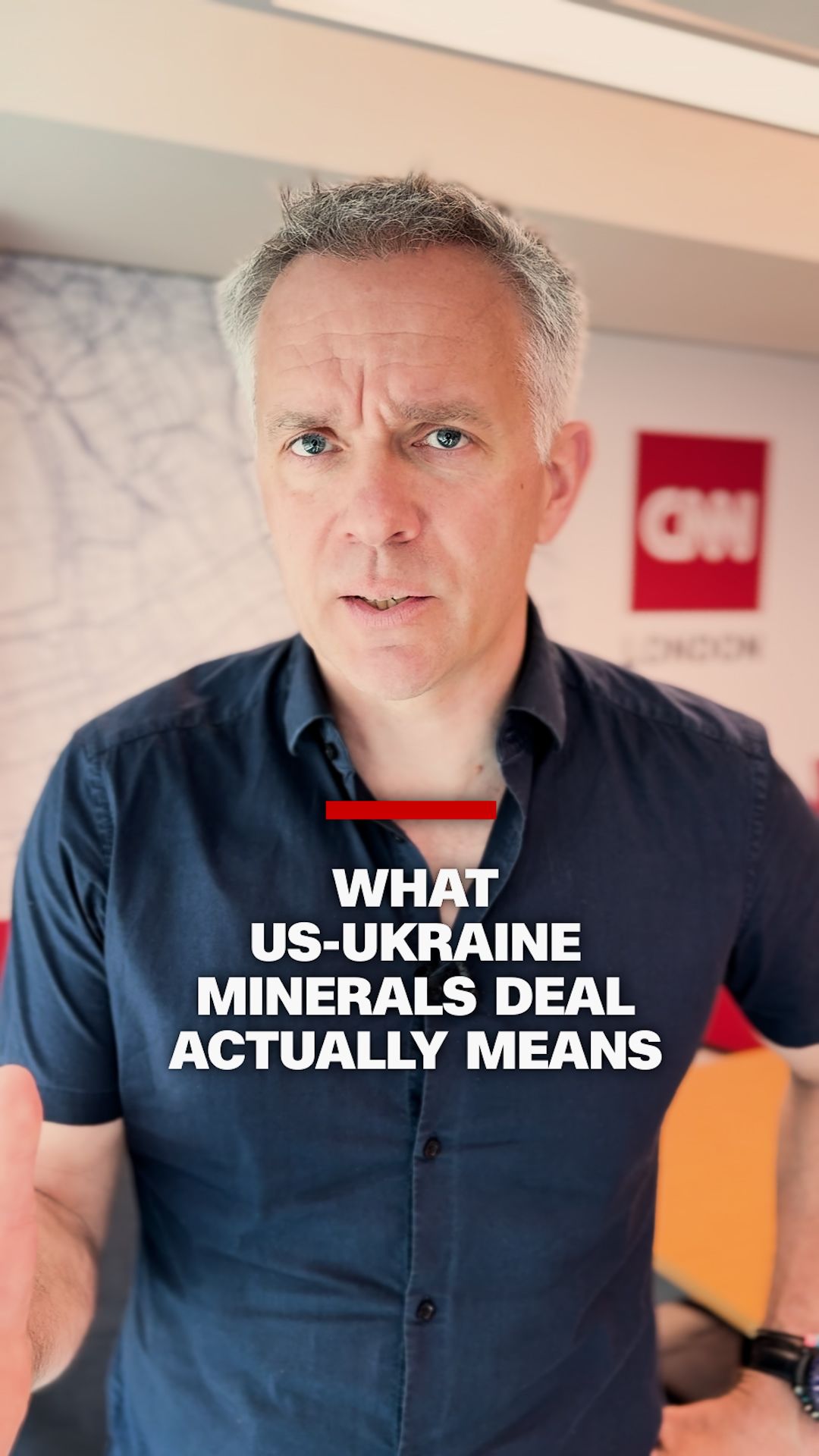Articles in this Cluster
02-05-2025
The U.S. and Ukraine signed a joint economic investment deal creating a United States-Ukraine Reconstruction Investment Fund to develop critical minerals, hydrocarbons, and related infrastructure in Ukraine. The 50/50 partnership grants the U.S. access to Ukrainian rare earths while keeping resource ownership with Ukraine. Funding will come from U.S. direct investment, future military assistance, and royalties from new Ukrainian resource licenses, with no new Ukrainian debt. Profits will be reinvested in Ukraine for the first decade. The deal aims to secure supply chains vital to U.S. economic and national security and has been linked to President Trump’s push for Ukraine to leverage its mineral resources amid ongoing tensions over the war with Russia.
Entities: United States-Ukraine Reconstruction Investment Fund, U.S. Treasury Department, Ukraine, critical minerals, rare earths • Tone: analytical • Sentiment: neutral • Intent: inform
02-05-2025
The U.S. and Ukraine signed an economic partnership granting Washington access to Ukraine’s mineral resources in exchange for creating an investment fund in Ukraine. CNN’s analysis suggests the deal aims to boost Ukraine’s economy, attract Western capital, and secure critical minerals for the U.S., potentially strengthening Kyiv’s position and leverage in efforts to end the war.
Entities: United States, Ukraine, CNN, Washington, Kyiv • Tone: analytical • Sentiment: neutral • Intent: analyze
02-05-2025
The US and Ukraine are close to signing a mineral deal after months of negotiations, with Ukraine's First Deputy Prime Minister Yulia Svyrydenko set to sign the agreement in Washington. The deal involves creating a joint reconstruction fund funded by 50% of profits from Ukraine's new mineral licenses, giving the US preferential access to Ukrainian natural resources. However, a last-minute snag emerged as US officials demanded Ukraine sign three documents at once, which Ukraine is hesitant to do due to required parliamentary ratification. The deal aims to secure US access to Ukraine's rare earth materials, including titanium, uranium, lithium, graphite, and manganese, in exchange for US support in the war with Russia.
Entities: United States, Ukraine, Yulia Svyrydenko, Washington, D.C., reconstruction fund • Tone: analytical • Sentiment: neutral • Intent: inform
02-05-2025
Sky News analysis says a new US-Ukraine economic deal marks a significant diplomatic reset, easing fears that Washington was leveraging aid for Ukraine’s mineral wealth. Though details are sparse and explicit military guarantees are absent, the agreement gives Donald Trump a personal political stake in Ukraine’s future by framing long-term joint investment and profit-sharing in mineral extraction. The deal follows tense negotiations and a pivotal Trump-Zelenskyy meeting in Rome. While it may stabilize fraying ties, it likely won’t hasten peace talks, Ukraine is still losing ground, and Trump could still end US military support despite the agreement.
Entities: United States, Ukraine, Donald Trump, Volodymyr Zelenskyy, Washington • Tone: analytical • Sentiment: neutral • Intent: analyze
02-05-2025
The U.S. struck a deal to share rights to Ukraine’s mineral reserves, aiming to reduce reliance on China for critical materials like lithium, titanium, uranium, and graphite, and possibly develop Black Sea oil and gas. Yet realizing any gains faces major hurdles: the war must end; many deposits are based on outdated surveys and need years of verification; mining would require massive investment, rebuilt energy infrastructure, and stable security. Market conditions also impede progress—low lithium prices are stalling even lower-risk projects. A flagship Ukrainian lithium mine with potential for ~2% of global supply still needs $350 million and is unlikely to advance during the war. While the deal could aid Ukraine’s recovery and benefit U.S. supply chains, timelines are long and financial, technical, and geopolitical risks are high.
Entities: United States, Ukraine, China, Black Sea, lithium • Tone: analytical • Sentiment: neutral • Intent: analyze
02-05-2025
Russia is increasingly worried that a new U.S.-Ukraine minerals agreement signals renewed American alignment with Kyiv, weakening Moscow’s leverage in peace talks. While Russian officials publicly derided the deal as turning Ukraine into a “mineral colony,” Kremlin-linked figures privately fear it hardens U.S. support and dims hopes of stopping U.S. arms to Ukraine—one of Russia’s key demands. The pact creates a U.S.-Ukraine Reconstruction Investment Fund and frames future U.S. military aid as investment, which Washington says strengthens its negotiating position.
The shift follows earlier Trump-era warmth toward Moscow, but recent U.S. criticism of Russian strikes, threats of tougher sanctions, and Senate moves for punitive tariffs have raised pressure on Putin. Inside Russia, economic strain—high inflation, soaring interest rates, worsening bank loans, and a growing budget deficit—is fueling debate between elites who want a freeze at current front lines with partial sanctions relief and hawks urging continued offensives. Analysts say the minerals deal may push Russia to keep fighting for better terms, even as Washington signals a firmer stance alongside Kyiv.
Entities: United States, Ukraine, Russia, Vladimir Putin, U.S.-Ukraine minerals agreement • Tone: analytical • Sentiment: negative • Intent: analyze
